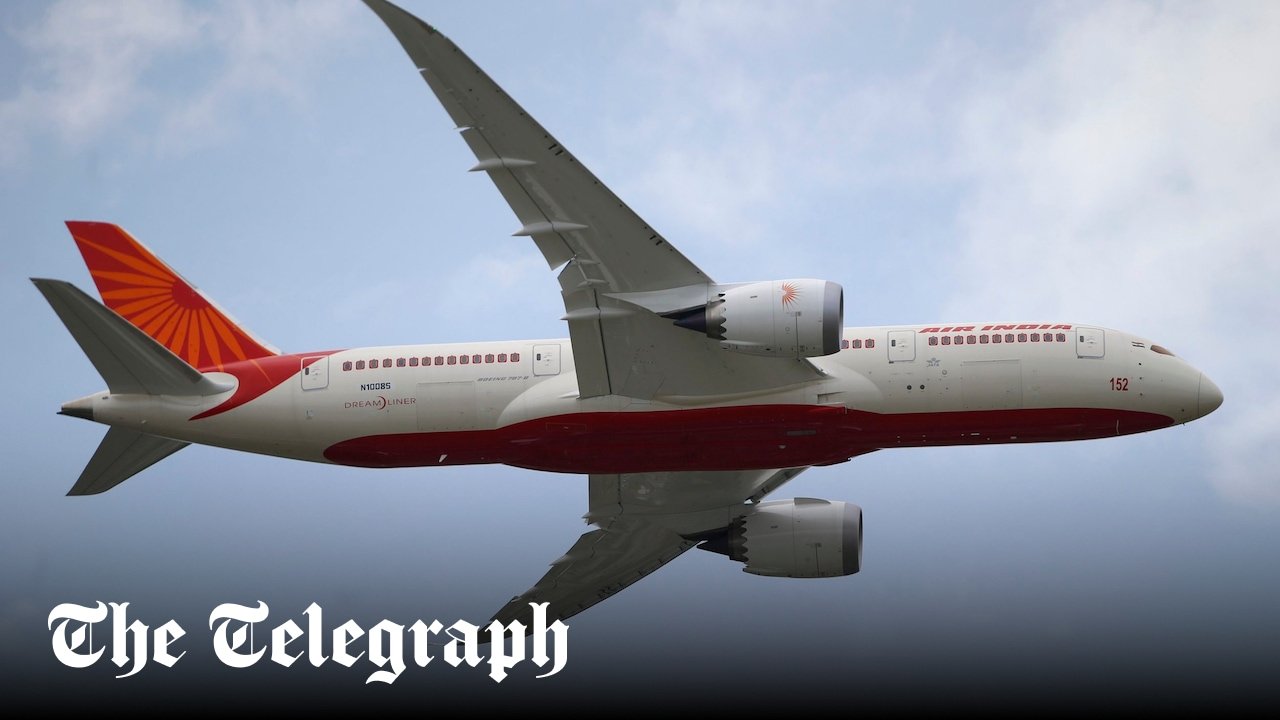Airliner identical to plane that crashed last week was forced to turn back an hour into flight from Mumbai to London
Copy link
twitter
facebook
whatsapp
email
Copy link
twitter
facebook
whatsapp
email
Copy link
twitter
facebook
whatsapp
email
Copy link
twitter
facebook
whatsapp
email
An Air India Boeing 787 identical to the plane that crashed last week made an emergency landing in 2023 after engine failure caused by poor maintenance.
The airliner was forced to turn back an hour into its 14-hour flight between Mumbai and London, India’s Directorate General of Civil Aviation (DGCA) said.
The 2023 engine failure, together with news that India’s aviation regulator has only half the number of staff it should be employing, will raise fresh questions about flight safety standards across the subcontinent.
Pilots flying the Dreamliner during the August 2023 incident said they heard a “loud thud” immediately before the left engine lost power, the DGCA’s investigation report said.
Vishwash Kumar Ramesh, the sole survivor of last Thursday’s disaster, said he heard a “loud noise” immediately before Air India flight AI171 crashed. His seat, 11A, was near the Boeing’s left engine.
Investigators looking into the 2023 engine failure discovered that the Boeing’s left-hand engine, made by the US company General Electric, failed after a turbine blade was incorrectly bolted in during routine maintenance and then broke loose.
General Electric, which inspected the failed engine on the DGCA’s behalf, concluded that the “release” of a high-pressure compressor blade “had occurred due to improper installation of locking lugs of HPC Stage 10”.
News of an engine failure with potential similarities to the events leading up to the deadly Ahmedabad crash came amid claims that the Indian air safety watchdog was suffering a manpower crisis.
The DGCA had less than half the staff in place needed to ensure safety, and Indian parliamentarians said three months ago that they had “fundamental concerns” about the shortages.
The watchdog is responsible for aviation safety and regulatory oversight, and the enforcement of civil air regulations, air safety and airworthiness standards, including inspections.
A report by the Indian parliament’s transport committee found that of the 1,633 posts comprising the “sanctioned strength” of the watchdog, only 754 were filled, leaving 879 vacancies.
“The committee notes with serious concern the high number of vacancies across key aviation regulatory and operational bodies, particularly in the Directorate General of Civil Aviation, the Bureau of Civil Aviation Security, and the Airports Authority of India,” the report said.
“The DGCA, responsible for aviation safety and regulatory oversight, has a vacancy rate exceeding 53 per cent, raising fundamental concerns about its capacity to enforce aviation safety standards effectively.”
It said that at the Bureau of Civil Aviation Security, tasked with maintaining aviation security, nearly 35 per cent of jobs were unfilled, “posing risks to the robustness of security oversight at airports”.
Similarly, at the Airports Authority of India, which manages critical airport infrastructure and air traffic services, unfilled job vacancies impacted operational efficiency and airport expansion.
“The committee is deeply concerned that chronic understaffing in these institutions could undermine safety, security, and service delivery standards, particularly as air traffic volumes continue to rise.
“The committee urges the Ministry of Civil Aviation to expedite the recruitment process to fill vacancies across DGCA, BCAS, and AAI, ensuring that regulatory oversight, security enforcement, and airport operations are not compromised.”
Last Friday, the DGCA issued a notice to Air India to conduct more inspections of all of its 787-8 and 787-9 fleet with GE engines.
This includes an inspection of the fuel monitoring systems, a test of the electronic engine control, a check of the hydraulics and a review of take-off parameters. “Power assurance checks” are also to be done on each airliner within two weeks.
The DCGA and General Electric were contacted for comment.
Copy link
twitter
facebook
whatsapp
email
